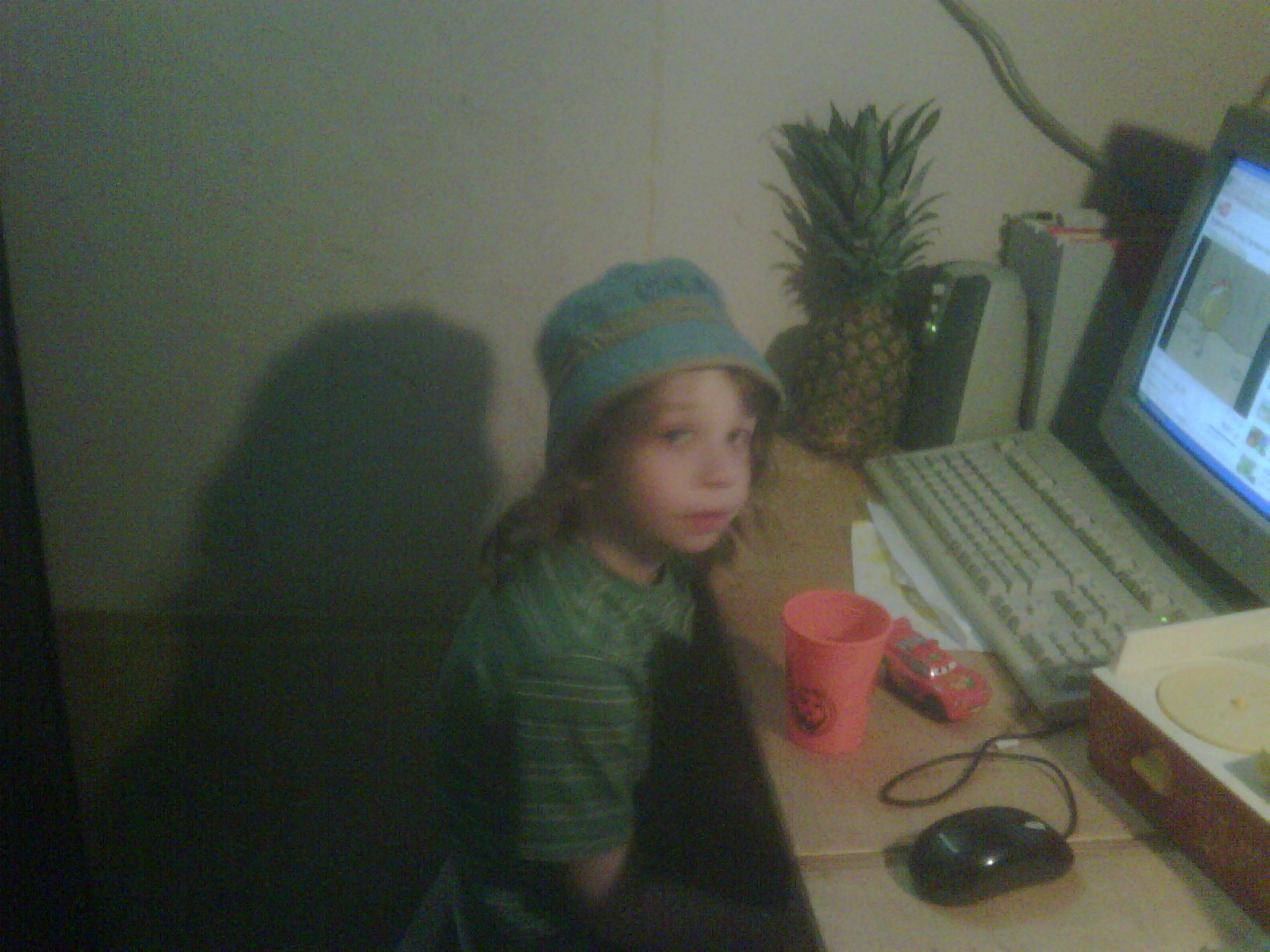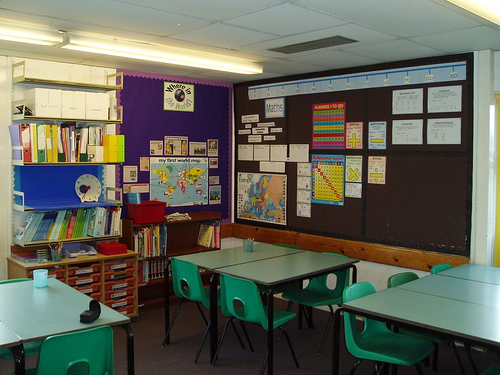 When my Mom came from South Africa for my wedding, she came bearing gifts for the boys. Among other things, each of them got a new hat. James wears his because it’s cool, and because none of his friends at school has an “Africa hat”. George wears his because he’s weird about hats. For George, a hat is not just a hat. It’s an essential part of his routine, one that he feels completely lost without.
When my Mom came from South Africa for my wedding, she came bearing gifts for the boys. Among other things, each of them got a new hat. James wears his because it’s cool, and because none of his friends at school has an “Africa hat”. George wears his because he’s weird about hats. For George, a hat is not just a hat. It’s an essential part of his routine, one that he feels completely lost without.
George’s previous hat was provided by my Mom as well. She mailed it over to me about a year ago, and since then it’s been practically glued to his head (except for the times when I sneak it into the washing machine while he is sleeping). The new hat is identical to the old hat. It’s got the same “South Africa” lettering on it, and it has the same animal pictures in the same pattern. The only difference is that while the old hat was cream-coloured, the new hat is blue.
For George, switching hats is a big deal. Imagine what it would be like if someone decided to remove your head and replace it with a new one. It may seem like an extreme example, but that is, for George, what switching hats is like. He got so comfortable with the old one, and so used to it, that getting rid of it was an unbearable prospect, one that resulted in meltdowns and anxiety attacks (mostly on George’s part, but a little bit on mine too).
There were house guests galore for a couple of weeks leading up to the wedding, and that in itself was a lot for my routine-dependent child with autism. Gerard suggested that maybe this was not the time to switch hats on George, and I had to agree. So we left it for a while. By last weekend, things had quietened down considerably. The wedding was a week in the past, and the only guest remaining was my Mom.
During a rough-and-tumble moment of play, George’s hat fell off. On a whim, I grabbed it and shoved it into the washing machine (it was starting to smell a little gamey). I took out the new hat and put it on George’s head. Predictably, he went ballistic. Screaming, kicking, tossing the hat away from him, crying with utter distress.
Fortunately, the old hat was not an option. At that moment, it was wet and sudsy and being tossed around in the washing machine. So there was no choice but to persevere with the new hat.
As George tossed himself screaming around the floor, I maneuvered him onto his back and sat on his legs, leaving his arms free. The hat was on the floor behind him, but within his reach. I looked into his eyes and started throwing out sums at him.
What’s four times five?
What’s three plus four?
What’s twenty minus six?
And so on. Each time I tossed out a question, George answered it. He seems to have a genuine love for numbers, and this technique is proving to be a surefire way of distracting him when he’s upset.
Sure enough, he gradually calmed down. When he started reciting times tables, I knew we were close. And then, slowly but surely, while he was still reciting his times tables, he reached behind him and casually put the new hat on his head.
It was a minor battle, but it was a battle nonetheless. And we won it, me and my boy.














